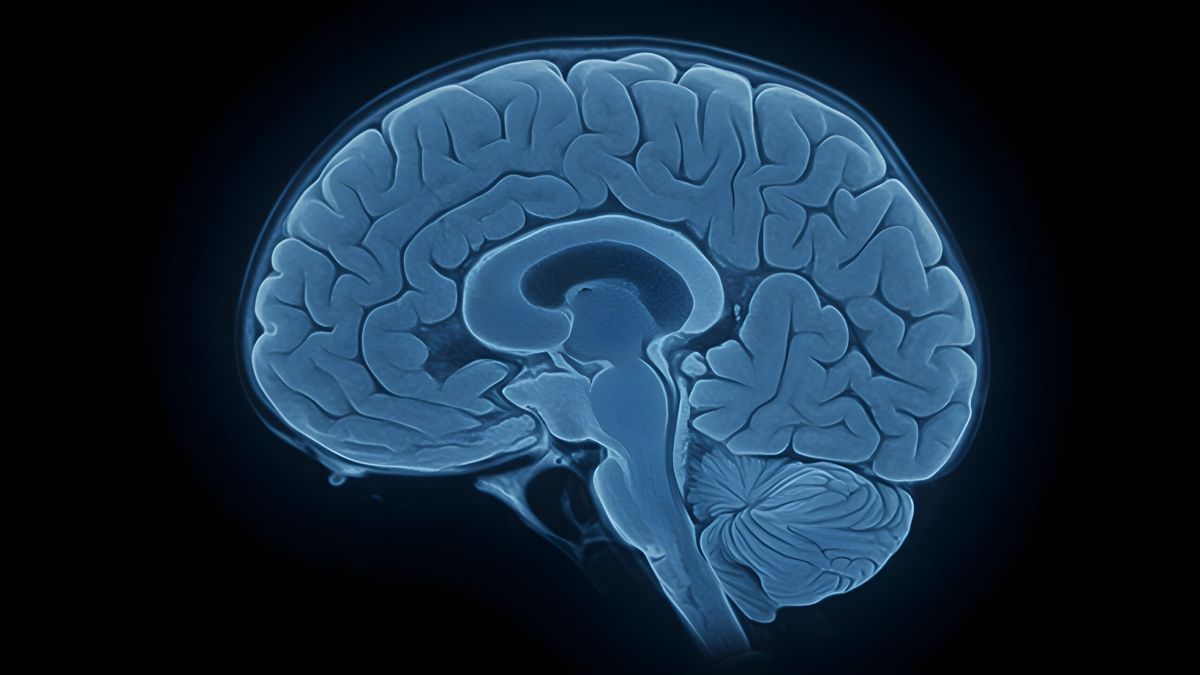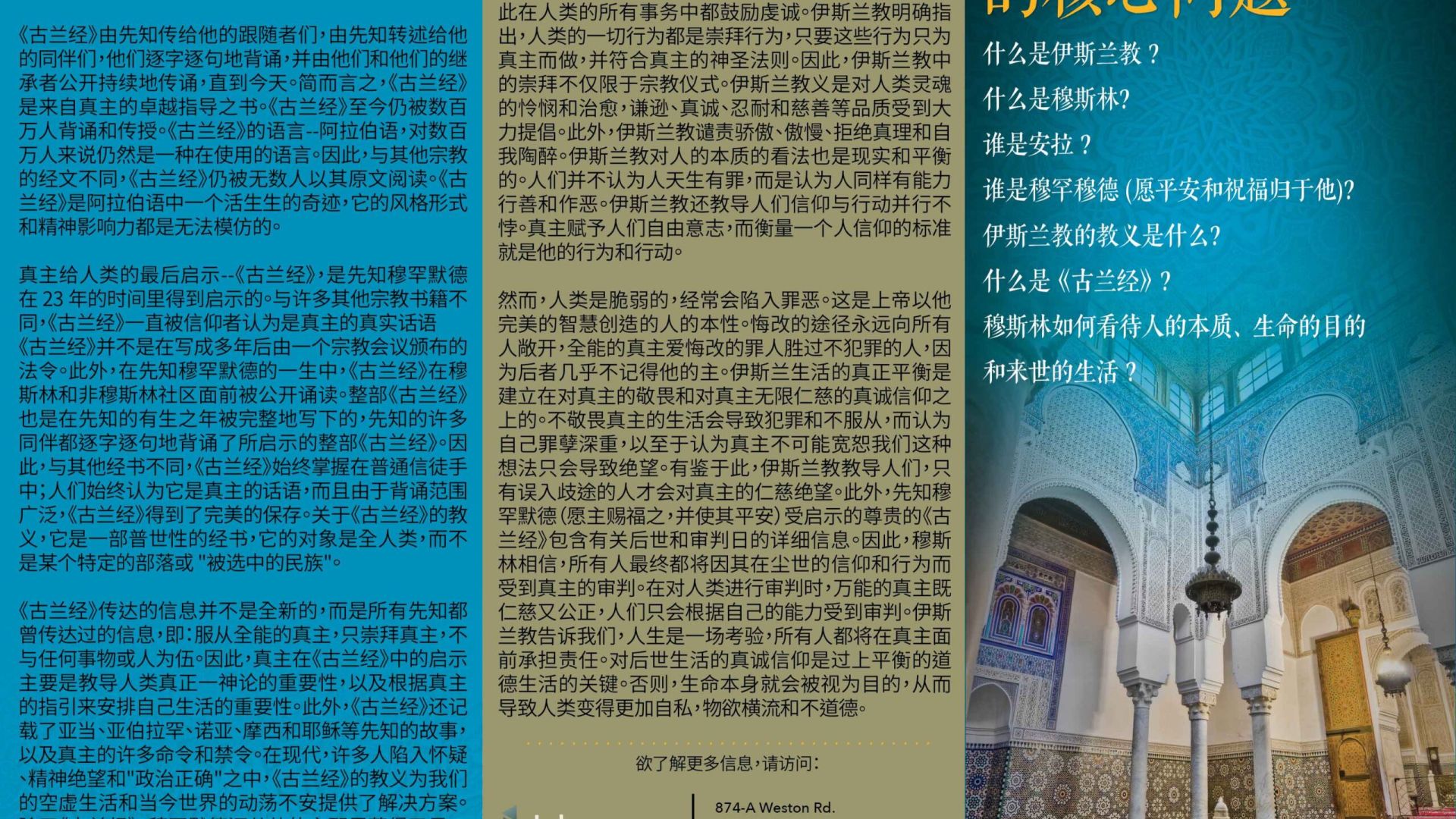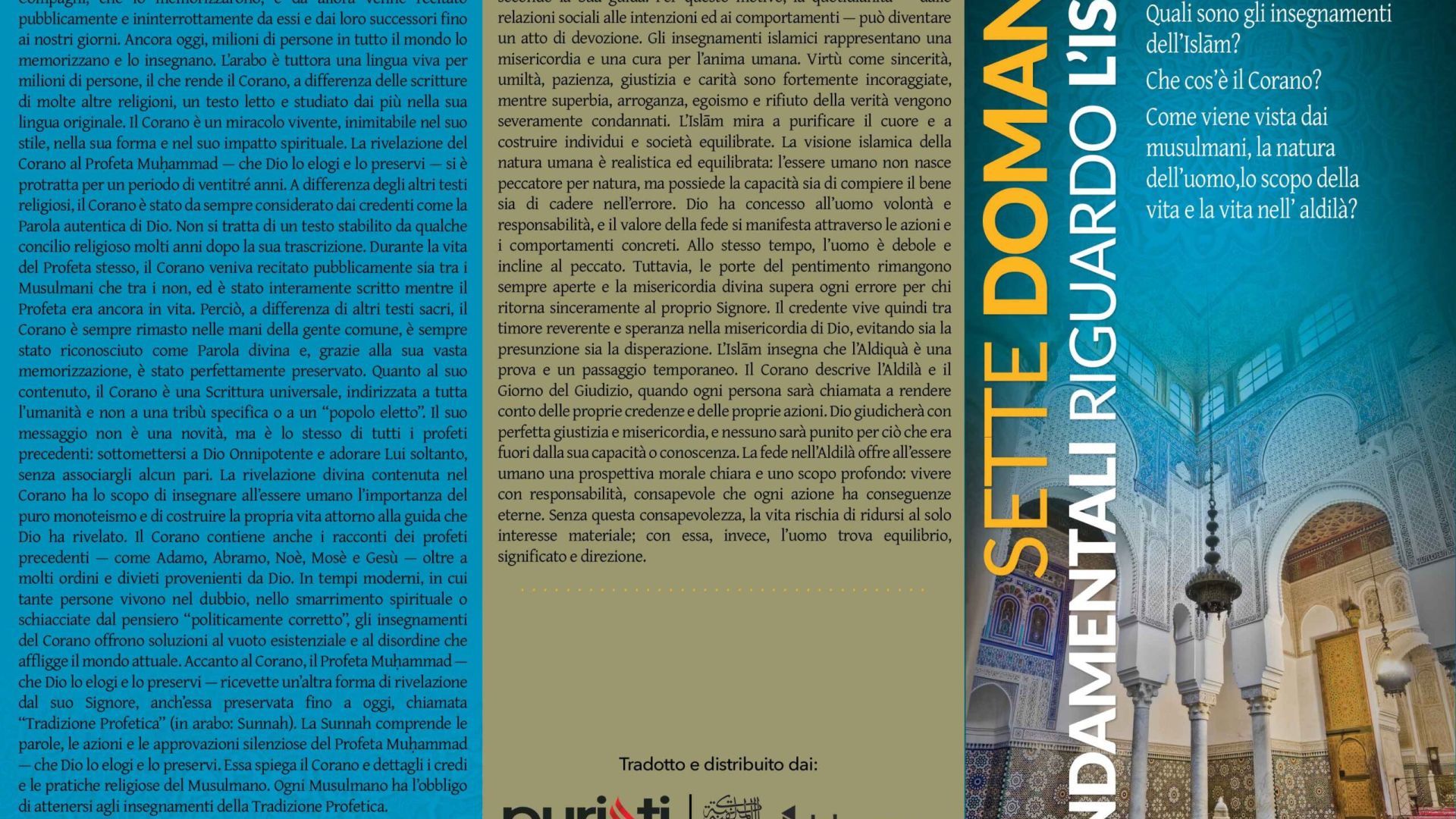The Islamic Legislative Understanding of Intelligence (ʿAql)
Imām Muḥammad Nāṣir al-Dīn al-Albānī, Imām Muḥammad ibn Ṣāliḥ al-ʿUthaymīn, Imām al-Qurṭubī, Imām ʿAbd al-Raḥmān ibn Nāṣir al-Saʿdī
An important distinction between general intelligence (i.e, cleverness, shrewdness etc.) and the specific intelligence of the guided, upright soul who uses his faculties of intelligence to enact upright Islamic character, showing obedience and steadfastness upon the Qurʾān and Sunnah. An admonition against having deep admiration for the secular scientists, business leaders, “influencers”, and athletes.
The Islamic Legislative Understanding of Intelligence (ʿAql)
Imām Muḥammad Nāṣir al-Dīn al-Albānī, Imām Muḥammad ibn Ṣāliḥ al-ʿUthaymīn, Imām al-Qurṭubī, Imām ʿAbd al-Raḥmān ibn Nāṣir al-Saʿdī
An important distinction between general intelligence (i.e, cleverness, shrewdness etc.) and the specific intelligence of the guided, upright soul who uses his faculties of intelligence to enact upright Islamic character, showing obedience and steadfastness upon the Qurʾān and Sunnah. An admonition against having deep admiration for the secular scientists, business leaders, “influencers”, and athletes.


Imām Muḥammad Nāṣir al-Dīn al-Albānī said:
The truly sincere Muslim must derive the Islamic creed from the Book of Allāh, the Sunnah, and the path of the believers (i.e., the companions) as evidenced by the āyah1, the ḥadīth that relates the division of this ummah into sects2, and the ḥadīth of ʿIrbāḍ ibn Sāriyah3. This is a reality that—unfortunately—all the various Islamic sects have chosen to remain ignorant regarding, especially the sect called Ḥizb al-Taḥrīr4. They have separated themselves from the other Islamic sects in their granting of great importance to intelligence and theoretical rhetoric, more so than the religion of Islām has ascribed to it5. Despite the fact that we recognise fully that Allāh’s words are directed first to those granted intelligence, the scholars, and deep thinkers. However, there is great variation in human intelligence which is of two types:
- The intelligence of the Muslim.
- The intelligence of the disbelievers.
As for the intelligence of the disbelievers, it does not represent actual intelligence. Rather, it may be astuteness or cleverness but it is definitely not intelligence in the truest sense of the word. This is because the word ʿaql (intelligence) in the Arabic language is granted to that which garners a sense of stability to its companion, firmly establishing and tying him to a single way of thinking without swaying right or left, away from it. A person’s intelligence is unable to attain such an established, stable state except by means of close adherence to the Book of Allāh and the Sunnah of the Messenger of Allāh (صلى الله عليه وسلم). For this reason, Allāh related to us the disbelievers and polytheists’ admittance of this reality, after being described in this worldly life as:
يَعْلَمُونَ ظَاهِرًا مِّنَ الْحَيَاةِ الدُّنْيَا وَهُمْ عَنِ الْآخِرَةِ هُمْ غَافِلُونَ
“They know only the outside appearance of the life of the world (i.e. the matters of their livelihood, like irrigating or sowing or reaping, etc.), and they are heedless of the Hereafter.”
(Rūm, 30:7)
Afterwards, they admit that despite their knowledge of the various affairs of this worldly life, they were not among the intelligent as Allāh relates their statement:
وَقَالُوا لَوْ كُنَّا نَسْمَعُ أَوْ نَعْقِلُ مَا كُنَّا فِي أَصْحَابِ السَّعِيرِ
“And they will say: ‘Had we but listened or used our intelligence, we would not have been among the dwellers of the blazing Fire!’”
(Al-Mulk, 67:10)
Based on this, we may divide intelligence into two types:
- Actual intelligence
- Metaphorical or semantic intelligence
Actual intelligence is displayed only by the Muslim through belief in Allāh and His Messenger (صلى الله عليه وسلم). As for the semantic form, it represents the intelligence of the disbeliever as evidenced by their statement in the aforementioned āyah. Furthermore, Allāh describes them in a more general sense saying:
لَهُمْ قُلُوبٌ لَّا يَفْقَهُونَ بِهَا
“They have hearts wherewith they understand not”
(Al-Aʿrāf, 7:179)
That is, they possess hearts but are unable to use them to gain true understanding and comprehension of the truth.
Based on this fundamental truth—which is one that I do not surmise there to be any difference of opinion regarding due to it being being plainly evident in the various passages from the Qurʿān and Sunnah—I would like to use this foundation to establish another fundamental truth: if the intelligence of the disbeliever is not considered actual intelligence, then the intelligence of the Muslim is also divided into two categories:
- Intelligence of the scholar
- Intelligence of the ignorant
The intelligence of the ignorant Muslim is unequivocal to that of the scholar, in terms of his ability to comprehend and fully understand various matters. Likewise, the intelligence of the scholar who acts in accordance with his knowledge is unequivocal to the intelligence of the scholar who refuses to do so. For this reason, the Most High said:
وَمَا يَعْقِلُهَا إِلَّا الْعَالِمُونَ
“But none will understand them except those who have knowledge (of Allāh and His Signs, etc.).”
(Al-ʿAnkabūt, 29:43)
Who are ‘those who have knowledge’? Is the āyāh referring to the disbelieving intelligentsia? It is not, nor do we attach value to such people due to the aforementioned āyāt that prove their lack of true intelligence. In actuality, they may be considered clever in relation to the many inventions and innovations they have orchestrated, elevating the fields of material sciences to great heights. This is widely recognised and well-known.
In consideration of this, it is absolutely impermissible for the true Muslim to grant free reign to his own intelligence as his only source of judgment, rather he must subdue his faculties of intelligence, rendering it subservient to the statements of Allāh and His Messenger (صلى الله عليه وسلم).6
Shaykh Muḥammad ibn Ṣāliḥ al-ʿUthaymīn said, concerning the āyah:
وَلَقَدْ آتَيْنَا مُوسَى الْهُدَى وَأَوْرَثْنَا بَنِي إِسْرَائِيلَ الْكِتَابَ (٥٣) هُدًى وَذِكْرَى لِأُولِي الْأَلْبَابِ (٥٤)
“And, indeed We gave Mūsá (Moses) the guidance, and We caused the Children of Israel to inherit the Scripture [i.e. the Tawrāh (Torah)], A guide and a reminder for men of understanding.”
(Ghāfir, 40:53-54)
Among the lessons derived from this āyah is that men of true understanding are the only ones who derive reminders from Allāh’s signs—both created and legislative varieties of them.
This āyah also praises those ascribed to intelligence as those who are defined as the Ahl al-Tadhakur (People of Remembrance), those who truly derive beneficial lessons and directives from what is related to them.
Although what is meant by ‘intelligence’ in this context; that is, are we referring to intelligence that necessitates correct guidance or general intelligence that facilitates perception and discovery? We are referring to the former. As for intelligence of perception and discovery, it renders one responsible for his actions from a legislative standpoint as clarified in the books of Islamic jurisprudence. This variety of intelligence, for example, is among the prerequisites of purification. As for intelligence that stipulates guidance to the correct path, those ascribed to this variety are quite scarce.
Also among its lessons is that anyone who refuses to be reminded of the reality of his affair by means of the signs of Allāh [both legislative and created] may not be ascribed to true intelligence.
[Q]: Is this claim not refuted by the great multitude of disbelieving leaders and trailblazers that have displayed great astuteness, cleverness and shrewdness?
[A]: There is a difference between intelligence and smartness. True intelligence is a term only granted to that which deters its companion from that which is harmful. For this reason, linguistically the reins of a camel in Arabic is given a name that shares this derivation [ʿiqāl derived from ʿaql]. This is contrary to the characteristics of smartness or cleverness. These are either inherent, natural qualities a person possesses or are cultivated and earned through one’s actions such that Allāh chooses to grant them.
There are even animals that may display a variety of smartness that surpasses that of humans in certain areas. For example, the crow displayed an intelligence greater than a human [Qābīl] who had committed murder, by teaching him how to hide his brother’s dead body7. There are other animals that are also more intelligent than many humans. Another example is the ant which is among the smartest animals. During the season in which plants produce seeds, the ant will collect and bury them in holes, but will not merely leave those seeds. Rather, there are ants that will masticate a part of it that prevents it from sprouting. This is because of the awareness and intelligence these animals possess that if these seeds are left as they are, they will sprout prematurely, lacking the ability to grow properly. Then, when Allāh—the Exalted in Might—commands the rain to fall and the seeds become soaked in these holes, these ants will extricate them from the ground to stop the process of putrefaction and decay, leaving them out in the sun to dry before returning them to their respective holes again. Besides this, there are a multitude of other fascinating habits displayed by animals.
In consideration of this, we may conclude that there is a difference between astuteness or cleverness and true intelligence. For how many individuals ascribed to great smartness and cleverness have been led by means of these very same qualities to the Fire—we seek refuge in Allāh from it! This is a plainly evident, fully recognisable fact. Smartness that remains unattached to true intelligence and belief in Allāh will eventually lead to complete destruction and ruin. There were a great multitude of people ascribed to great shrewdness and cleverness whom the true scholars surmised would eventually fall into corruption and their affair transpired exactly as surmised.
Therefore, our contention remains unaffected by the fact that among the disbelievers there are those considered extremely clever and astute, leaders in their respective fields. This is because true intelligence is a concept that differs greatly from mere cleverness.8
Allāh—the Most High—said:
أَمْ تَأْمُرُهُمْ أَحْلَامُهُم بِهَٰذَا ۚ أَمْ هُمْ قَوْمٌ طَاغُونَ
“Do their minds command them this [i.e. to tell a lie against you (Muḥammad (صلى الله عليه وسلم)] or are they people exceeding the bounds (i.e. from Belief in Allāh to disbelief).”
Imām al-Qurṭubī comments:
“Do their minds command them” that is, do their intellects command them “or are they people exceeding the bounds” devoid of true intelligence. It was once said to ʿAmr ibn al-ʿĀṣ: “What is the circumstance of your people who refuse to believe in Islām despite Allāh ascribing intelligence to them?” He (رضي الله عنه) answered: “Those are intellects Allāh plans to outwit by artful machination.” He means by this Allāh has refused to grant them true guidance, that is: the ability to recognise the truth and act in accordance with it (tawfīq).
“Minds” here has also been interpreted as the possession of the faculties needed to think (dhihn). This is because true intelligence (ʿaql) was not granted to the disbelievers. For if they possessed true intelligence, they would have believed in Allāh. Thus, the faculties of thought were granted to the disbelievers such that it would bear witness against them. For the one who possesses the capacity to think will be granted by means of it general recognition of the information presented to it, while one with true intelligence is able to make distinction and accurately classify this information, delineating the boundaries indicated by (Islamic) orders and prohibitions.
It was narrated that a man once said to the Prophet (صلى الله عليه وسلم): “O Messenger of Allāh! How intelligent is such-and-such Christian!” He (صلى الله عليه وسلم) replied: “Cease [such statements]! Disbelievers are indeed devoid of true intelligence.” In another narration: “Cease [such statements]! The truly intelligent are those who engage in acts of obedience. Have you not heard the statement of the Most High, “And they will say: “Had we but listened or used our intelligence, we would not have been among the dwellers of the blazing Fire!”9 10
Imām ʿAbd al-Raḥmān ibn Nāṣir al-Saʿdī said:
As for the atheists who claim that there is nothing but the life of this world, we live and we die and nothing destroys us except time itself 11, or that it is mother nature that has given rise to everything in existence and to all events that have transpired, they have limited themselves only to what they perceive of this worldly life, acknowledging and recognising only what they are able to perceive of it. Then they completely reject anything that remains unseen to them including the information relayed by the Prophets and their wise teachings. The span of knowledge ascribed to these godless people is subsequently narrow and constricted, their hearts filled with disbelief, arrogance, and mockery of the knowledge imparted by the Messengers. Their intentions are so corrupt that Allāh has chosen to place a seal over their faculties of perception (over their hearts, their hearing and their sight) such that they are unable to derive true benefit from these senses. As the Most High said:
وَجَعَلْنَا لَهُمْ سَمْعًا وَأَبْصَارًا وَأَفْئِدَةً فَمَا أَغْنَىٰ عَنْهُمْ سَمْعُهُمْ وَلَا أَبْصَارُهُمْ وَلَا أَفْئِدَتُهُم مِّن شَيْءٍ إِذْ كَانُوا يَجْحَدُونَ بِآيَاتِ اللَّهِ وَحَاقَ بِهِم مَّا كَانُوا بِهِ يَسْتَهْزِئُونَ
“And We had assigned them the (faculties of) hearing (ears), seeing (eyes), and hearts, but their hearing (ears), seeing (eyes), and their hearts availed them nothing since they used to deny the āyāt (Allāh’s prophets and their prophethood, proofs, evidences, verses, signs, revelations, etc.) of Allāh, and they were completely encircled by that which they used to mock at!”
(Al-Aḥqāf, 46:26)
إِنَّ الَّذِينَ يُجَادِلُونَ فِي آيَاتِ اللَّهِ بِغَيْرِ سُلْطَانٍ أَتَاهُمْ ۙ إِن فِي صُدُورِهِمْ إِلَّا كِبْرٌ مَّا هُم بِبَالِغِيهِ ۚ فَاسْتَعِذْ بِاللَّهِ ۖ إِنَّهُ هُوَ السَّمِيعُ الْبَصِيرُ
“Verily, those who dispute about the āyāt (proofs, evidences, verses, lessons, signs, revelations, etc.) of Allāh, without any authority having come to them, there is nothing else in their breasts except pride [to accept you (Muḥammad (صلى الله عليه وسلم)) as a Messenger of Allāh and to obey you]. They will never have it (i.e. Prophethood which Allāh has bestowed upon you). So seek refuge in Allāh (O’ Muḥammad (صلى الله عليه وسلم) from the arrogants). Verily, it is He Who is the All-Hearer, the All-Seer.”
(Ghāfir, 40:56)
We seek refuge with Allāh from developing the type of arrogance displayed by such people that has relegated them to such depravity, completely preventing them from ever attaining truly beneficial knowledge, happiness and success. For their woefully deficient ‘knowledge’ has only facilitated their framing of contemptible behaviour as exemplary. For this reason Ibn al-Qayyim—may Allāh have mercy on him—said:
“The variety of knowledge that is imparted by means of relaying and informing is exponentially more copious than the type of knowledge gained by perception and intellect alone. In fact, there is not a single realm within which a meaningful comparison between these two varieties of knowledge may be drawn. For this reason, by means of one’s ability to hear, a person may gain an awareness and knowledge much more comprehensive and encompassing than that which he has the ability to only observe. For he may hear information relayed to him that concerns that which is either non-existent or existant, and that which is present before him or absent. As such, the proportion of information only attained by perception compared to that which is imperceptible or not perceived is like a drop taken from the ocean. There is no avenue towards gaining awareness of such matters except by means of information relayed from a trustworthy source. Allāh has selected certain men among His creation for prophethood, informing them of certain unseen matters in accordance with His will, permitting their acquaintance with matters that others were never made privy to. In this way, there is no avenue towards perceiving most, if not all of the information related by the prophets except by receiving it directly from them. For this reason, the people who occupy the highest echelons of complete and perfect knowledge from every nation are always those most adherent to the messengers, even if there existed other notably clever and shrewd people besides them, for example experts in the fields of astronomy, architecture, physics and other scientific fields. For these ‘experts’ were the people that, when their messengers came to them with clear proofs, they were pompous and arrogant, favouring their knowledge of worldly things12, granting precedence to their fields of expertise over all the information relayed by the messengers. Their affair: “consists only of inaccurate estimations and knowledge of futile, useless things that possess no inherent benefit” as the wise poet once said.
Thus, we seek refuge in Allāh from frivolous knowledge. Even if the knowledge promoted by such clever and shrewd individuals could be considered beneficial in some way, its relative benefit compared to the knowledge obtained from the prophets is akin to the benefit attributable to the life of this world compared to the eternal, everlasting life of the hereafter. Therefore, only true knowledge is imparted by the prophets regarding Allāh, either His commands or in the various forms of information from Him. For this is knowledge that purifies the soul, perfects and cultivates the natural disposition of man (fiṭrah), correcting and curing their intellects [from vile thoughts and ideologies]. This, specifically, was referred to by Allāh as ‘knowledge’, referring to all that opposes it as: conjecture, hearsay, and outright lies, all of which are no substitute for the truth.13
For this reason, if you were to truly contemplate the positions taken by those who oppose the words of the prophets, who do so with their supposed ‘intelligence’, you will find that they possess only lies. You will come to the realisation that they are the actual liars [as named in the Qurʾān14], and that true knowledge was imparted by the prophets and messengers by means of revelation. It is by means of this knowledge that Allāh’s proof [of His right to be worshipped] and argument against His creation is instated, and by means of it His prophets and their followers are guided and praised for their adherence to it.15
Endnotes:
[1] Referencing al-Nisāʾ, 4:115:
وَمَن يُشَاقِقِ الرَّسُولَ مِن بَعْدِ مَا تَبَيَّنَ لَهُ الْهُدَىٰ وَيَتَّبِعْ غَيْرَ سَبِيلِ الْمُؤْمِنِينَ نُوَلِّهِ مَا تَوَلَّىٰ وَنُصْلِهِ جَهَنَّمَ ۖ وَسَاءَتْ مَصِيرًا
“And whoever contradicts and opposes the Messenger (Muḥammad (صلى الله عليه وسلم)) after the right path has been shown clearly to him, and follows other than the believers’ way. We shall keep him in the path he has chosen, and burn him.”
[2] On the authority of Abū Hurayrah (rad): The Messenger of Allāh (صلى الله عليه وسلم) said: “The Jews have divided into seventy one sects and the Christian into seventy two, and this ummah will divide into seventy three sects, all of them are in the Fire except for a single one.” The companions asked: “Who are they O’ Messenger of Allāh?” He replied: “Those who have adopted the same methodology and creed that myself and my companions have adopted on this day”. Authentic: narrated by al-Tirmidhī: 2641-2 and graded authentic by Shaykh al-Albānīn in al-Ṣaḥīḥah: 203.
[3] On the authority of al-ʿIrbāḍ ibn Sāriyah who said: “One day the Messenger of Allāh led us in ṣalāh. Upon its conclusion, he turned to face us and proceeded to admonish us in a manner which was the pinnacle of effectiveness, such that our eyes flowed (with tears) and our hearts filled (with fear). A man said: “O’ Messenger of Allāh! It seems as if this is your farewell admonishment, so what advice do you leave us with?” He (صلى الله عليه وسلم) said: “I advise you to have taqwá of Allāh [protect yourselves from His punishment by enacting His commands and abstaining from His prohibitions], and to hear and obey [your rulers in that which is not disobedient to Allāh], even if an Abbasinyan slave presides as a ruler over you. For indeed those among you granted an extended life shall encounter much differing after my demise. So hold on to my Sunnah and the Sunnah of the rightly guided Khalifas after me—firmly grasp it, biting onto it with your molar teeth. And I warn you from ever engaging in newly invented religious matters. For certainly every newly invented religious matter represents nought but an innovation (bidʿah), and every religious innovation represents misguidance.” Authentic: narrated by Abū Dāwūd: 4607 and graded authentic by Shaykh al-Albānī in Ṣaḥīḥ al-Jāmiʿ:2549. See also its detailed explanation in “The Farewell Address of the Prophet (ﷺ) Explained” (forthcoming).
[4] Ḥizb al-Taḥrīr: political party established by Taqī al-Dīn al-Nabahānī. See nabahani.com.
[5] Translator note: referring to the fact that true intelligence is to render one’s opinions subservient to the Book of Allāh and the Sunnah as clarified at the end of this excerpt. It is not to apply ʿilm al-kalām (theological rhetoric) to the name and attributes of Allāh in the manner Ḥizb al-Taḥrīr and other innovators have done. See a detailed refutation of them and the station granted to ʿaql in Islām in Shaykh al-Islām’s Darʾ Taʿārud al-ʿAql wa-al-Naql.
[6] Source: Jāmiʿ Turāth al-ʿAllāmah al-Albānī 1:239-243
[7] Referencing al-Māʾidah 5:31:
فَبَعَثَ اللَّهُ غُرَابًا يَبْحَثُ فِي الْأَرْضِ لِيُرِيَهُ كَيْفَ يُوَارِي سَوْءَةَ أَخِيهِ ۚ قَالَ يَا وَيْلَتَىٰ أَعَجَزْتُ أَنْ أَكُونَ مِثْلَ هَٰذَا الْغُرَابِ فَأُوَارِيَ سَوْءَةَ أَخِي ۖ فَأَصْبَحَ مِنَ النَّادِمِينَ
“Then Allāh sent a crow who scratched the ground to show him to hide the dead body of his brother. He (the murderer) said: “Woe to me! Am I not even able to be as this crow and to hide the dead body of my brother?” Then he became one of those who regretted.”
[8] Source: Tafsīr al-ʿUthaymīn: Ghāfir 380-382.
[9] Weak (Fabricated): narrated by al-Ḥakīm al-Tirmidhī and graded fabricated by Ibn Ḥajar in al-Maṭālib al-ʿĀliyah: 3307.
[10] Source: Al-Jāmiʿ li-Aḥkām al-Qurʾān 17:73.
[11] Referencing al-Jāthiyah 45:24.
[12] Referencing Ghāfir, 40:83.
[13] Referencing al-Najm 53:28.
[14] See, for example, al-Anʿām 6:116 and 148, Yūnus 10:66, and al-Zukhruf 43:20.
[15] Source: Al-Adillat al-Qawāṭiʿ:30-32.
Compiled and translated by; Riyāḍ al-Kanadī
Most Popular: Last 30 Days

Everyone’s Speech Is Subject to Acceptance or Rejection Except the Prophet (ﷺ)











